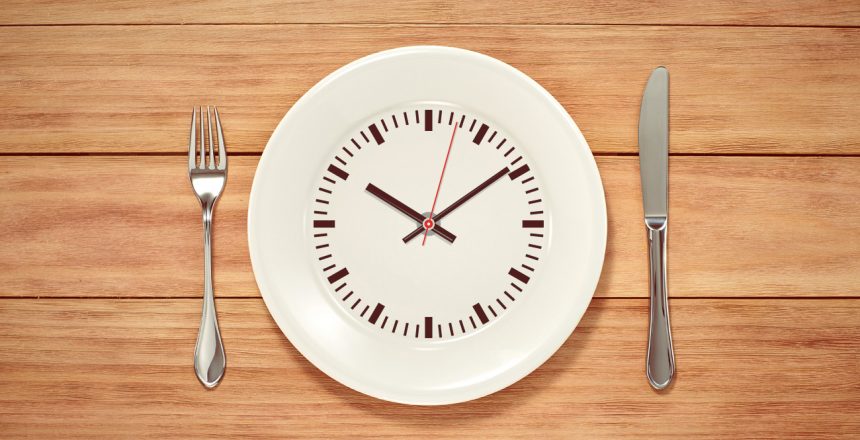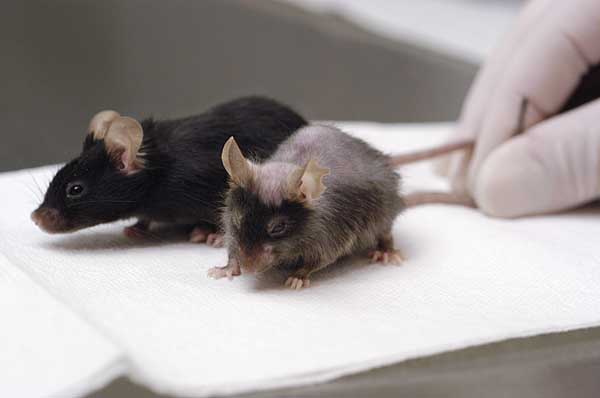Intermittent fasting, the practice of going without food for some defined period of time, often from 16 hours up to 36 hours, has many benefits, as I’ve written quite a bit about. The following are some benefits that either haven’t been discovered before or you might not have considered.
Intermittent fasting could rejuvenate stem cells
Stem cells are those cells that have the capability of forming themselves into mature cells of different kinds. They maintain the ability to do so through most of our adult lives, and this is important for renewal of tissues and organs. For instance, bone marrow stem cells have the ability to change into different kinds of white blood cells.
A new report in Nature, “Autophagy maintains stemness by preventing senescence”(1), finds that stem cells maintain their “stemness” into advanced old age via autophagy, the cellular self-cleaning process.
During ageing, muscle stem-cell regenerative function declines. At advanced geriatric age, this decline is maximal owing to transition from a normal quiescence into an irreversible senescence state. How satellite cells maintain quiescence and avoid senescence until advanced age remains unknown. Here we report that basal autophagy is essential to maintain the stem-cell quiescent state in mice… our findings reveal autophagy to be a decisive stem-cell-fate regulator, with implications for fostering muscle regeneration in sarcopenia.
Autophagy declines with age, and at the point of advanced old age, this may cause stem cells to lose their stemness and become senescent.
Intermittent fasting strongly increases autophagy, and this is probably the main mechanism of its benefits. As such, it helps keep the organism – that’s you and me – in a youthful state.
By practicing intermittent fasting, this could stave off the decline of stem cells.
Intermittent fasting could prevent dementia
Mark Mattson, a leading scientist in the field of aging, wrote “Late-onset dementia: a mosaic of prototypical pathologies modifiable by diet and lifestyle”(2). He writes:
Intermittent bioenergetic challenges forestall ILOD [idiopathic late-onset dementia] by stimulating adaptive stress response pathways. As with other species, humans evolved in environments where there was competition for food, mates and other resources. Accordingly, selection favored individuals whose brains functioned best when they were hungry, physically active and under stress. In response to the challenges (exercise, dietary energy restriction/fasting, intellectual challenges and consumption of noxious phytochemicals) neurons experience mild bioenergetic and oxidative stress. The neurons respond adaptively by activating signaling pathways that improve their ability to cope with more severe stress and resist disease.
The challenges Mattson lists, exercise, dietary restriction, fasting, and noxious phytochemicals, are all means of eliciting hormesis, which is the activation of anti-stress responses in response to toxins and stressors. (Noxious phytochemicals are those chemicals found in fruits and vegetables, notably berries and cruciferous vegetables like broccoli and cabbage, as well as coffee, tea, and chocolate, and also include resveratrol and curcumin.) The organism than attains a better state of health because of it.
All these modes of hormesis he mentions are important for long life and health. The opposite is the couch potato who never challenges himself. Some form of hormetic challenge should be engaged in daily.
Intermittent fasting could remove lipofuscin
Lipofuscin, the toxic waste of aging, is cellular junk that accumulates with age and literally gunks up cells, making them less able to perform their functions. It’s thought that the accumulation of lipofuscin plays an important role in the maladies of aging. For instance, lipofuscin appears to be directly related to macular degeneration, a leading cause of blindness in the elderly.
But there’s been debate among cell biologists as to whether cells can ever be rid of lipofuscin. There’s been some experimental success using drugs in cell cultures, but other results have been meager. It’s been thought that by its very nature, lipofuscin resists removal.
A group of scientists recently found they could remove lipofuscin from the cells of… marine snails.(3)
The aim of this investigation was to test the hypothesis that fasting-induced augmented lysosomal autophagic turnover of cellular proteins and organelles will reduce potentially harmful lipofuscin (age-pigment) formation in cells by more effectively removing oxidatively damaged proteins. An animal model (marine snail – common periwinkle,Littorina littorea) was used to experimentally test this hypothesis. Snails were deprived of algal food for 7 days to induce an augmented autophagic response…. This treatment resulted in a 25% reduction in the cellular content of lipofuscin in the digestive cells of the fasting animals…These findings support the hypothesis that fasting-induced augmented autophagic turnover of cellular proteins has an anti-oxidative cytoprotective effect by more effectively removing damaged proteins, resulting in a reduction in the formation of potentially harmful proteinaceous aggregates such as lipofuscin. The inference from this study is that autophagy is important in mediating hormesis.
While the experimental animal here may seem odd, it’s no odder than worms (C. elegans) used in aging research, and I don’t see any reason these results wouldn’t apply to humans, although admittedly I know little about marine snails.
In any case, fasting strongly increased autophagy and resulted in a large clearance of lipofuscin from cells.
The upshot
There seems to be no end to the ways that intermittent fasting can provide health benefits. It may preserve stemness, prevent dementia, and remove lipofuscin, all solid anti-aging measures.














7 Comments
I’m back doing IF, Dennis. (btw, would love access to the old Mangan’s. I used to use your post in radioactive hormesis for my classes). Question: if I do not eat between 8pm and 1pm, but I have a cup of coffee, have I blown the fast? I never take sugar in my coffee.
I suspect at some point I will need to go from 8pm to 5pm the next day to break a pattern, and I will fast on Ash Wednesday the whole day. I’m not hungry and it’s a great way to reduce food consumption relatively painlessly.
Hi Tom, no, coffee without sugar will not break your fast, and in some ways enhances it. That’s because coffee promotes autophagy and fat-burning. A small amount of cream is also acceptable – just nothing with protein or carbs.
I’ve been meaning to write something on radiation hormesis here and shoulod do so.
Thanks for reading.
The old Mangan’s was the best place on the alt-right, excepting maybe Slumlord’s place. Thank you for all your writing over the years. I will go to heavy cream from light in ye olde coffee.
Fwiw, I recall the idea that the beneficial effect of some radiation comes from recreating the background level of cosmic rays which were apparently 10x what we have at present. Those levels held for most of the time that DNA was being used as a biological storage mechanism, and one suggestion was that radiation helped reactivate telomerase.
Hi Dennis,
I’ve always liked the idea of I.F., but we are so conditioned to not coping well with hunger. Food is so readily available after all. I spent my entire life (I’m 57) grazing on fruit between meals) . Fruit’s ‘healthy’, right? But eventually achieving autophagy just seemed like such a good idea that I started missing breakfast and have worked up to ’36 hrs between eating very healthy food to satisfaction. Going to sleep hungry – the jump from 24 hrs to 36 hr was the hardest of all. I can’t believe I’ve spent my previous life missing out on this stuff. It took me about a month to find that length of fast easy. We are SO programmed to fear hunger. No joke, now I enjoy that warm feeling just as much as eating in turn. There’s a kind of exhilaration knowing that my cells are ALL spring cleaning in unison. A veritable CHORUS of autophagy. One of the most amazing things is that I haven’t lost muscle although I eat a lot less food, including protein.
Thanks heaps for helping me over the line into regular autophagy.
On a completely different topic. what do you think is the ideal daily iodine intake?
Hi Stuart – wow, you have a great fasting regimen going. I haven’t ever gone longer than about 20 hours myself – and like you, I wonder about being able to sleep when hungry. The extent to which people eat all the time is crazy – and drink too; every fat person I see seems to be cconstantly chugging a sugared drink.
As to iodine, that’s controversial. I recently restarted a couple drops of Lugol’s iodine every day, equivalent to about 5 mg if I recall correctly. This is way more than the RDA, which is under 1 mg. The late Dr. Guy Abraham wrote a stunning series of articles about it, which convinced me to take it when I was attempting my recovery from chronic fatigue. I think the iodine RDA may be something like vitamin D, which was set very low for a long time because that prevented rickets, but it has many other functions you don’t get without a higher dose. The RDA for iodine is only enough to prevent goiter, but if Abraham is correct, iodine has many other functions and higher dose is needed.